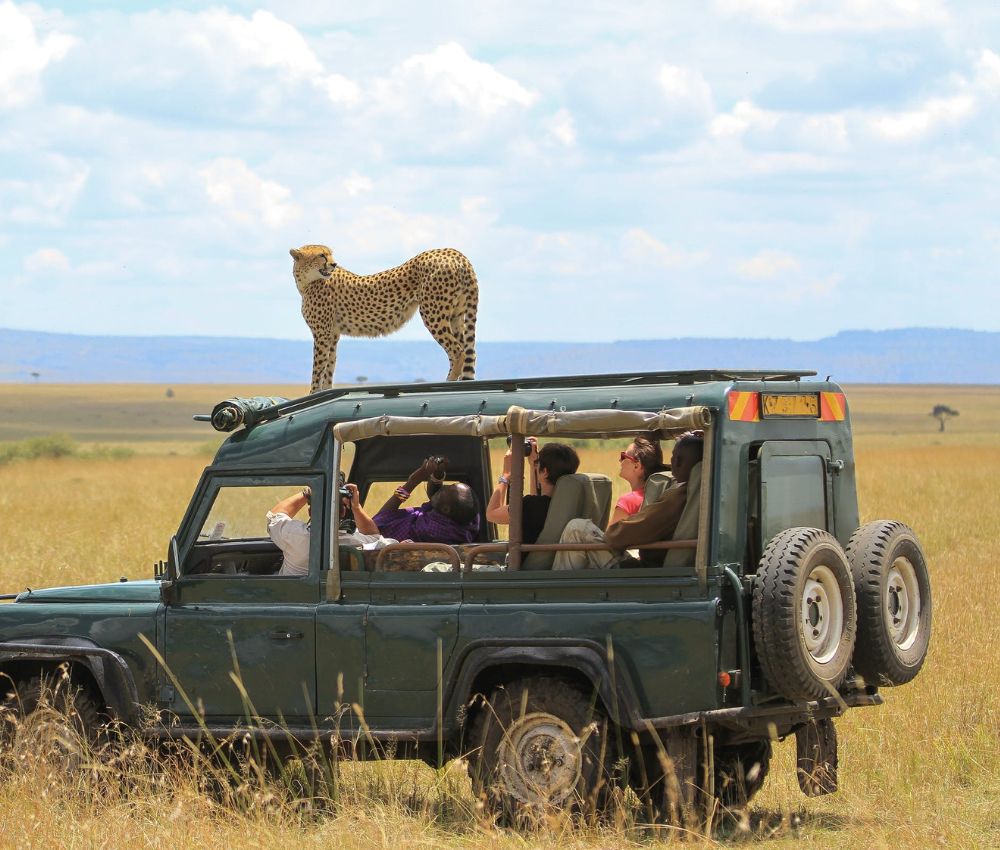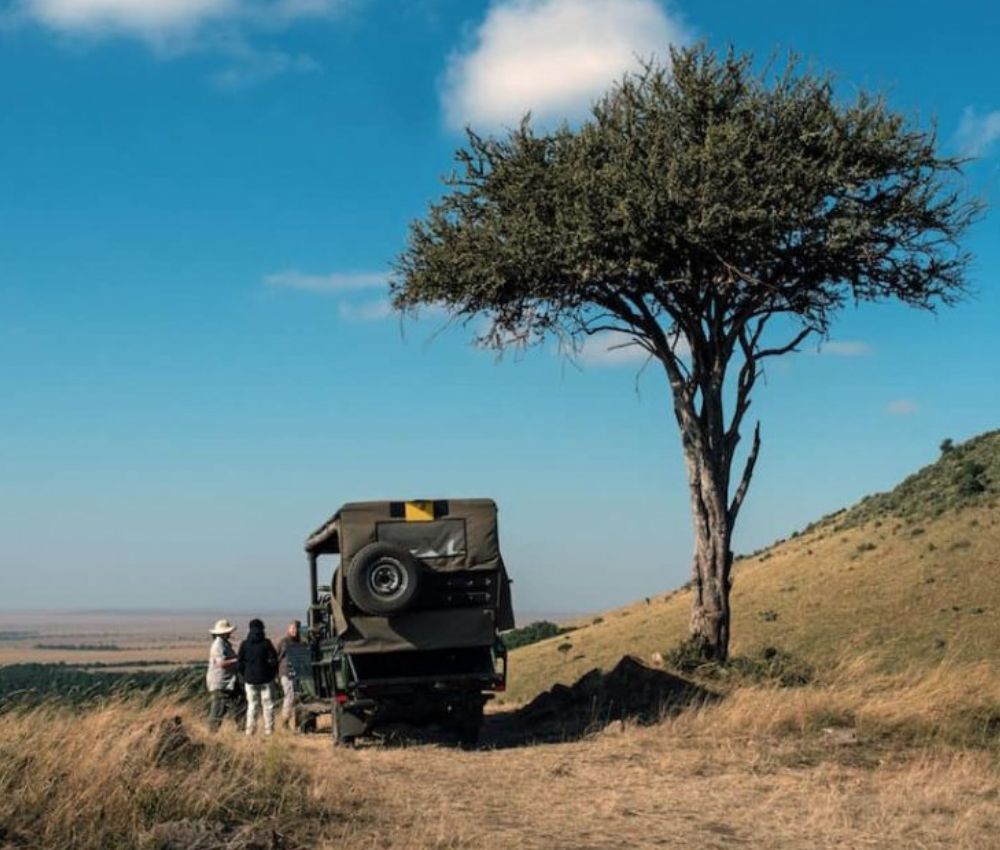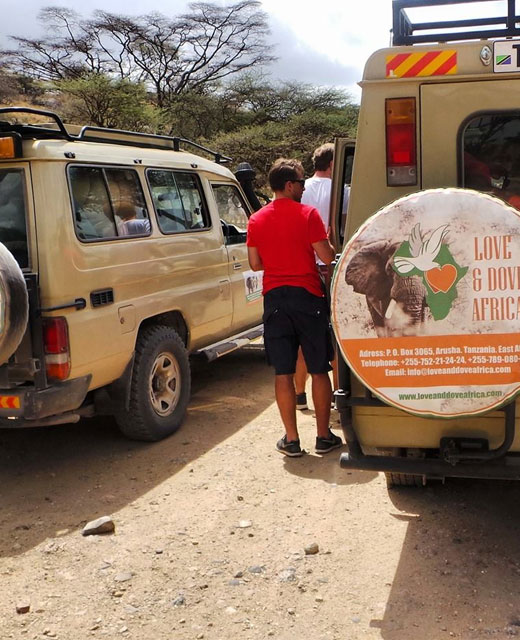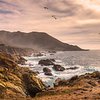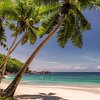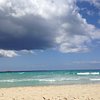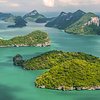Travelling Tips
You should be in possession of a passport valid for at least 6 months beyond your intended stay in Africa. Australian passport holders currently require visas for Zimbabwe (issued on arrival at a fee), Tanzania, Kenya, and many West Africa, Central Africa and North Africa countries. Other nationalities require a re-entry permit to Australia and may require additional visas to the above. Please contact us for further details.
You should take most of your money in travelers cheques in US Dollars, Pounds or Euro. It is strongly recommended that you carry some US dollars cash in small denominations, as well as credit cards such as Visa or Mastercard.
For most trips to Africa, the following vaccinations are recommended: Yellow Fever, Typhoid, Meningitis, Hepatitis A, (Maybe Hepatitis B for longer visits), Polio, Diphtheria, Cholera, Tetanus and Malaria. Whilst these vary depending on the countries visited, length of time away and the type of accommodation and transport used, we do recommend that these and your other health needs be discussed with your doctor or specialist travel medical centre. We can advise you on the most suitable health precautions to take in relation to your itinerary, but it is your responsibility to ensure that you have the appropriate vaccinations and documentation.
The dry season is generally considered the most comfortable time to travel in Africa. However, because the dry season occurs at different times in each country, Africa is a wonderful destination year-round.
Contact us for more details on the best time to travel to your desired destination.
Kenya/Tanzania: Jan-Mar/Mid Jun-Oct
Zimbabwe: Apr-Nov
Botswana: Apr-Nov
Zambia: May-Nov
Namibia: Mar-Dec
South Africa: Jan-May/Aug-Dec
Madagascar: Apr-Oct
Mauritius: Apr-Oct
Egypt: Nov-Feb
Morocco: Mar-May/Sep-Nov
Ethiopia: Sep-May
This is a guide only. Variation in weather patterns can occur.
The choice of the correct camera equipment and film will determine the quality of your photographs on the trip. For good photography of birds and animals, a good SLR camera and telephoto lens is necessary. A zoom lens can be extremely useful on safari and the minimum recommended size is 200mm. Consideration should be given before traveling with any lens bigger than 400 mm as most interesting shots are taken using hand held equipment. The new high-resolution digital cameras are outstanding and give great quality images, especially if you are using a digital camera body, which takes normal camera lenses. Camera bodies like the Canon D60 and 1D are superb. The advantage of digital photography is that one can get instant feedback and adjustments can be made in the field to your techniques to ensure that your photographs are the quality that you would like.
Colour reversal film (slides) will give far better quality than prints. The guides have found that they are getting the best results using Fuji film. Fuji has brought out a good high-speed film that gives good colour with very little grain (less so than any of their competitors). This is especially useful when using a big lens in low light situations. The guides' personal preference is the slower film (either 50 or 100 ASA) as this gives almost perfect quality for normal light. However, you may consider going to 200 ASA for a larger lens in low lighting conditions. The new Fuji 400, we believe is giving great results too. The only disadvantage with the low ASA film is that you need a tripod for the early morning and evening shots.
The wild animals are not like those found in theme parks – they aren't tame.
Most of the safari camps are unfenced and dangerous animals can (and do!) wander through the camps. Many of the animals and reptiles you will see are potentially dangerous. Attacks by wild animals are rare. However, there are no guarantees that such incidents will not occur. African Travel Specialists, their staff members, associates, agents or suppliers cannot be held liable for any injuries caused during an incident involving the behaviour of wild animals.
Please listen to the camp staff and guides. The safety precautions need to be taken seriously, and strictly adhered to.
Don't go wandering off on your own without a guide – even to your rooms. After retiring to your rooms at night, don't leave them.
Observe animals silently and with a minimum of disturbance to their natural activities. Loud talking on game drives can frighten the animals away.
Never attempt to attract an animal's attention. Don't imitate animal sounds, clap your hands, pound the vehicle or throw objects.
Please respect your driver-guide's judgment about proximity to lions, cheetahs and leopards. Don't insist that he take the vehicle closer so you can get a better photograph. A vehicle driven too close can hinder a hunt or cause animals to abandon a hard-earned meal.
Litter tossed on the ground can choke or poison animals and birds and is unsightly.
Never attempt to feed or approach any wild animal on foot. This is especially important near lodges or in campsite areas where animals may have become more accustomed to human visitors.
Refrain from smoking on game drives. The dry Africa bush ignites very easily, and a flash fire can kill animals.
When on safari, a lightweight, versatile wardrobe is most suitable. The weather fluctuates between extremes of heat and cold, meaning layers of clothing are the best option.
Here is a list of what to Pack:
• Sunglasses.
• Golf-shirts, T-shirts and long-sleeved cotton shirts
• Shorts/skirts
• Long trousers/slacks
• More formal attire for your stay at prestigious city hotels or on one of the luxury trains.
• Underwear and socks (sports bra recommended on game drives as the roads can be bumpy and uneven)
• Good walking shoes or boots
• Swimming costume
• Polar Fleece or Warm Parka
• Scarf / gloves for the cold winter months (May to September)
• Light rain gear for summer months (late November to April)
• Camera equipment and plenty of film
• If you wear contact lenses, we recommend that you bring along a pair of glasses in case you get irritation from the dust
• Binoculars
• Newman's bird book if you are a keen birder.
• Personal toiletries (basic amenities supplied by most establishments)
• Malaria tablets (if applicable)
• Moisturizing cream & suntan lotion
• Insect repellent e.g. Tabard, Rid, Jungle Juice, etc
• Basic medical kit (aspirins, plasters, Immodium, antiseptic & anti-histamine cream etc)
• Tissues/"Wet Ones"
• Visas, tickets, passports, money etc
• Waterproof/dustproof bags/cover for your cameras.
Please note that bright colours and white are NOT advised whilst on safari
Africa is a friendly continent. However, as with any city/town, please be VERY careful when shopping, do not wander around at night in towns (use taxis), and do not leave valuables in hotel rooms etc. Place your valuables in a safe when available. Most importantly do not wear any jewellery when walking around the towns or cities and wear a plain inexpensive watch. Engagement ring or any precious stones should be left at home.
Tipping is not compulsory. If, however, you want to tip because you have received good service, we have enclosed a brief guideline to assist you:
There are no poisonous lizards or frogs in East Africa. The largest lizard, the Nile monitor, is shy but is capable of biting if cornered. Wash your hands after handling reptiles or amphibians (but rather leave them alone).
You don’t see that many insects or creeping things during dry seasons. More appear during rainy seasons (including beautiful ones, such as butterflies). The same goes for mosquitoes, which by biting may infect you with malaria, a life-threatening disease unless properly treated. Mosquitoes thrive in moist and warm areas, and are most common during rainy seasons, near rivers and lakes, and by the coast. The mosquitoes that may carry malaria are active at night.
Tsetse flies, which are active during daytime, may infect you with sleeping sickness. This is very rare to safari-goers, though. The bites hurt a lot, and are reason enough to kill or chase flies out of the vehicle.
Avoid storing food in your room or tent, as it may attract ants.


